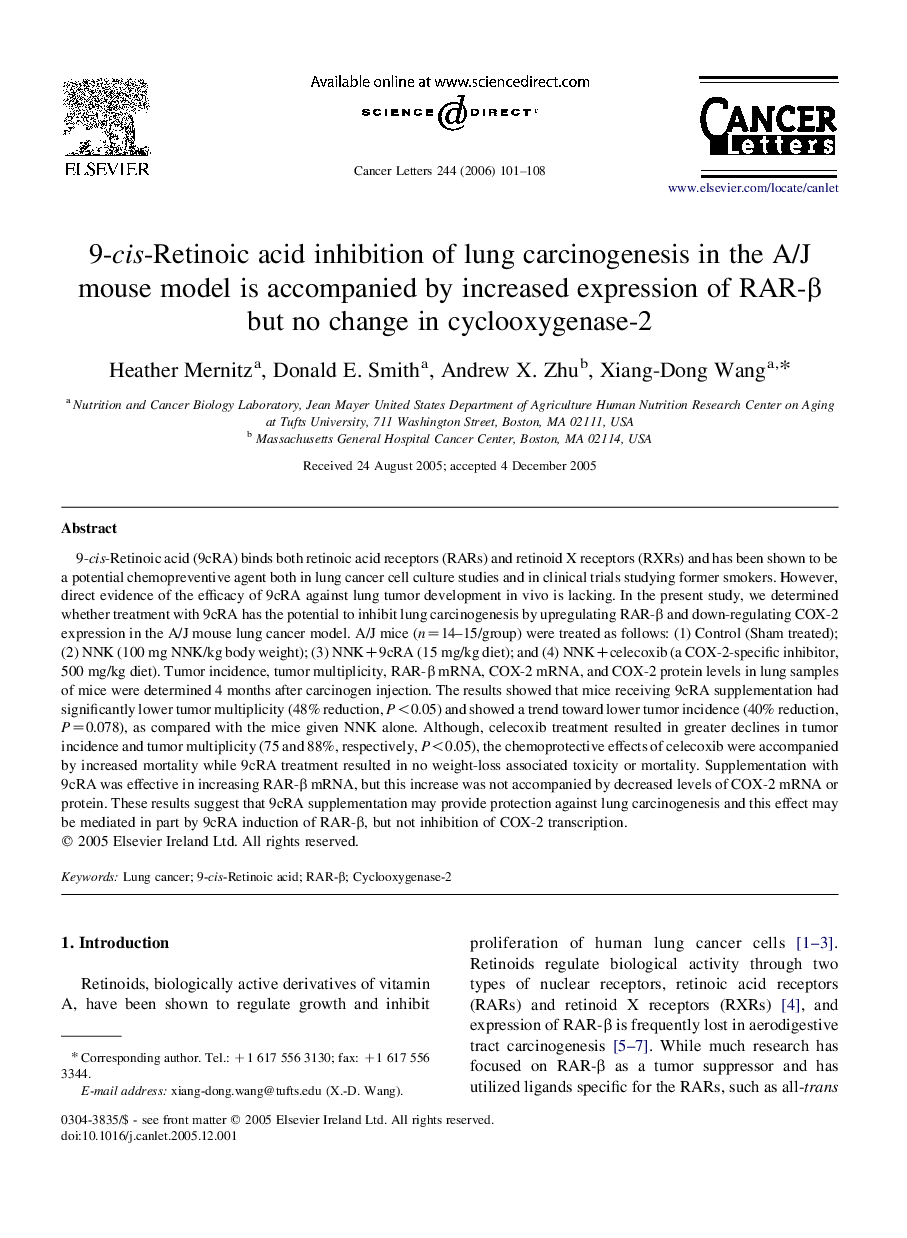| Article ID | Journal | Published Year | Pages | File Type |
|---|---|---|---|---|
| 2115611 | Cancer Letters | 2006 | 8 Pages |
9-cis-Retinoic acid (9cRA) binds both retinoic acid receptors (RARs) and retinoid X receptors (RXRs) and has been shown to be a potential chemopreventive agent both in lung cancer cell culture studies and in clinical trials studying former smokers. However, direct evidence of the efficacy of 9cRA against lung tumor development in vivo is lacking. In the present study, we determined whether treatment with 9cRA has the potential to inhibit lung carcinogenesis by upregulating RAR-β and down-regulating COX-2 expression in the A/J mouse lung cancer model. A/J mice (n=14–15/group) were treated as follows: (1) Control (Sham treated); (2) NNK (100 mg NNK/kg body weight); (3) NNK+9cRA (15 mg/kg diet); and (4) NNK+celecoxib (a COX-2-specific inhibitor, 500 mg/kg diet). Tumor incidence, tumor multiplicity, RAR-β mRNA, COX-2 mRNA, and COX-2 protein levels in lung samples of mice were determined 4 months after carcinogen injection. The results showed that mice receiving 9cRA supplementation had significantly lower tumor multiplicity (48% reduction, P<0.05) and showed a trend toward lower tumor incidence (40% reduction, P=0.078), as compared with the mice given NNK alone. Although, celecoxib treatment resulted in greater declines in tumor incidence and tumor multiplicity (75 and 88%, respectively, P<0.05), the chemoprotective effects of celecoxib were accompanied by increased mortality while 9cRA treatment resulted in no weight-loss associated toxicity or mortality. Supplementation with 9cRA was effective in increasing RAR-β mRNA, but this increase was not accompanied by decreased levels of COX-2 mRNA or protein. These results suggest that 9cRA supplementation may provide protection against lung carcinogenesis and this effect may be mediated in part by 9cRA induction of RAR-β, but not inhibition of COX-2 transcription.
